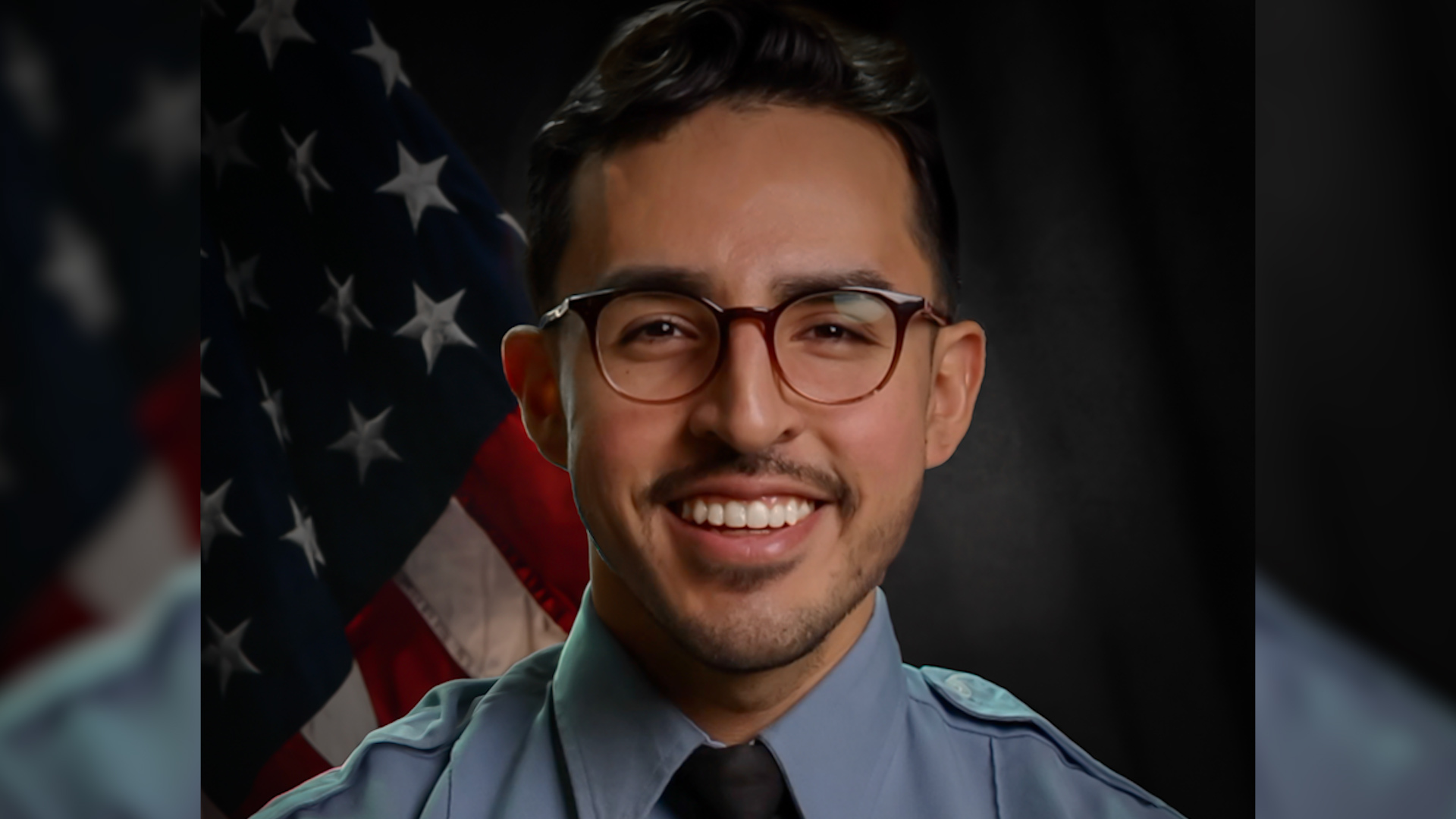Editor's Note: If you're looking for information about the latest Speaker of the House election, you can find that here. Our original story from earlier this year continues below.
What was expected to be a day of triumph for House Republicans coming into the majority turned into chaos as interparty fighting over who should lead them in their new reign left them with no speaker in the rostrum.
And things haven't improved Wednesday.
Republicans failed to elect a speaker after Kevin McCarthy could not overcome opposition from the right flank of his party following an hourslong series of votes on the first day of the new Congress.
Feeling out of the loop? We'll catch you up on the Chicago news you need to know. Sign up for the weekly Chicago Catch-Up newsletter here.
The opposition from 20 lawmakers, including some of the chamber’s most conservative members, to McCarthy's speakership handicapped the House's ability to start its work and delayed the ceremonial swearing-in of hundreds of returning members and freshmen.
GOP lawmakers on Wednesday tried once again to elect a speaker despite uncertainty over how McCarthy could rebound after becoming the first House speaker nominee in 100 years to fail to win the gavel with his party in the majority.
What to know as the House is now in its second day of the speaker election:
Local
WHY IS THERE NO SPEAKER?
Needing 218 votes in the full House, McCarthy received just 203 in the first two rounds of voting on the first day — less even than Democrat Hakeem Jeffries in the GOP-controlled chamber — and fared even worse with 202 in round three.
For a fourth, fifth and sixth time Wednesday, Republicans tried to vote McCarthy into the top job as the House plunged deeper into disarray. But the votes were producing almost the same outcome, 20 conservative holdouts still refusing to support him, and leaving him far short of the 218 typically needed to win the gavel.
In fact, McCarthy saw his tally slip to 201, as one fellow Republican switched to vote simply present.
“Well, it's Groundhog Day,” said Rep. Kat Cammack, R-Fla., in nominating McCarthy on the sixth ballot.
She said, “To all Americans watching right now, We hear you. And we will get through this — no matter how messy.”
A growing chorus of detractors warned for months that the California Republican did not have the votes to win the constitutionally mandated office, which would make him second in line to the presidency. In response, McCarthy negotiated endlessly with members, including Reps. Andy Biggs, Scott Perry and Matt Gaetz, to win their support.
The negotiations went up until Monday night when members of the ultra-conservative Freedom Caucus presented McCarthy with their final offer, which included demands for certain committee assignments in exchange for their votes.
McCarthy refused to oblige, saying he had gone far enough to appease the lawmakers.
“For the last two months, we worked together as a whole conference to develop rules that empower all members, but we’re not empowering certain members over others,” McCarthy told reporters early Tuesday.
As a result, those members and more than a dozen others openly opposed him on the floor.
Among those choosing not to get behind McCarthy’s candidacy is downstate Rep. Mary Miller, who cast her vote for Rep. Jim Jordan, despite the Ohio Republican delivering a speech formally nominating McCarthy for the position.
While Jordan says he doesn’t want the job, other Republicans have called for Rep. Steve Scalise as a compromise candidate to appeal to the hardline members of the caucus who refuse to vote for McCarthy.
WHAT DOES THAT MEAN FOR THE CHAMBER?
Without a speaker, the House cannot fully form since that person effectively serves as the chamber's presiding officer and the institution’s administrative head.
Swearing in members, naming committee chairs, engaging in floor proceedings and launching oversight investigations will all be delayed until a speaker is elected and sworn into office.
“The spotlight needs to be put on these 19 — now 20 — that are stopping the business of Congress that we got elected to do,” Rep. Don Bacon, R-Neb., said. “It's on them.”
HOW WILL IT GET RESOLVED?
It remains unclear if and when McCarthy will pass the threshold to become the next speaker of the House. The current number of Republicans who have pledged support to other candidates is at 20, with some suspecting that list will grow.
The California Republican vowed to keep fighting despite losing in multiple rounds of voting.
“I still have the most votes,” McCarthy said at the start of the session. “At the end of the day, we’ll be able to get there.”
On Tuesday, Republicans opposing McCarthy nominated a slew of other candidates, including Biggs, Rep. Jordan of Ohio and even former Rep. Lee Zeldin of New York.
“I rise to nominate the most talented, hardest-working member of the Republican conference, who just gave a speech with more vision that we have ever heard from the alternative,” Gaetz said Tuesday while nominating Jordan.
Jordan, the McCarthy rival-turned-ally, was twice pushed forward by conservatives, but he does not seem to want the job. The Ohio Republican is line to become Judiciary Committee chairman, and he rose during the floor debate to urge his colleagues to instead vote for McCarthy.
“We have to rally around him, come together,” Jordan said.
On Wednesday, a right-flank leader from the Freedom Caucus offered a challenge to McCarthy — nominating Rep. Byron Donalds, R-Fla., in another history making moment. Both Jeffries and Donalds are Black.
“This country needs leadership,” said Rep. Chip Roy, the Texas Republican noting the first time in history two Black Americans were nominated for the high office, and lawmakers from both parties rose to applaud.
To be sure, none of them reached a majority of the votes, but it was enough to detract support from McCarthy, who in a 222-213 majority can't afford to lose more than a handful of votes.
The candidate to become speaker needs a majority of the votes from House members who are present and voting. Every lawmaker voting “present” lowers the overall tally needed to reach a majority.
With McCarthy coming up short again on Wednesday, the clerk will repeat the roll call vote until he is able to garner a majority or a motion to adjourn is approved.
If McCarthy could win 213 votes, and then persuade the remaining naysayers to simply vote present, he would be able to lower the threshold required under the rules to have the majority.
It's a strategy former House speakers, including outgoing Democratic Speaker Nancy Pelosi and Republican Speaker John Boehner had used when they confronted opposition, winning the gavel with fewer than 218 votes.
Said McCarthy late Tuesday at the Capitol: “You get 213 votes, and the others don’t say another name, that’s how you can win.”
HAS THIS EVER HAPPENED BEFORE?
The last time the House did not elect a speaker on the first ballot was 1923 when the election stretched for nine ballots.
At the time, Republicans had won the majority despite losing a staggering 77 seats, shrinking their margin over Democrats from 171 to just 18. The majority party had named incumbent Rep. Frederick Gillett, R-Mass., to the position, but several other candidates, including a Democrat, received votes during the roll call.
This resulted in a series of ballots over three days before House Majority Leader Nicholas Longworth, R-Ohio, held an emergency meeting with those opposing. Their concern, similarly to those issued against McCarthy, was over a series of rules changes that they believed deserved a fair hearing. Longworth obliged and the next day Gillett garnered the 215 votes he needed to remain speaker.



